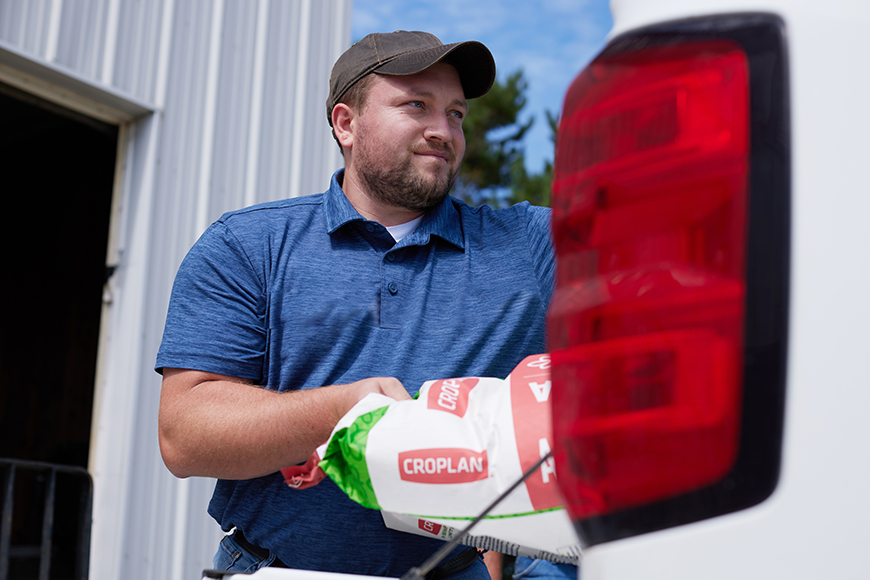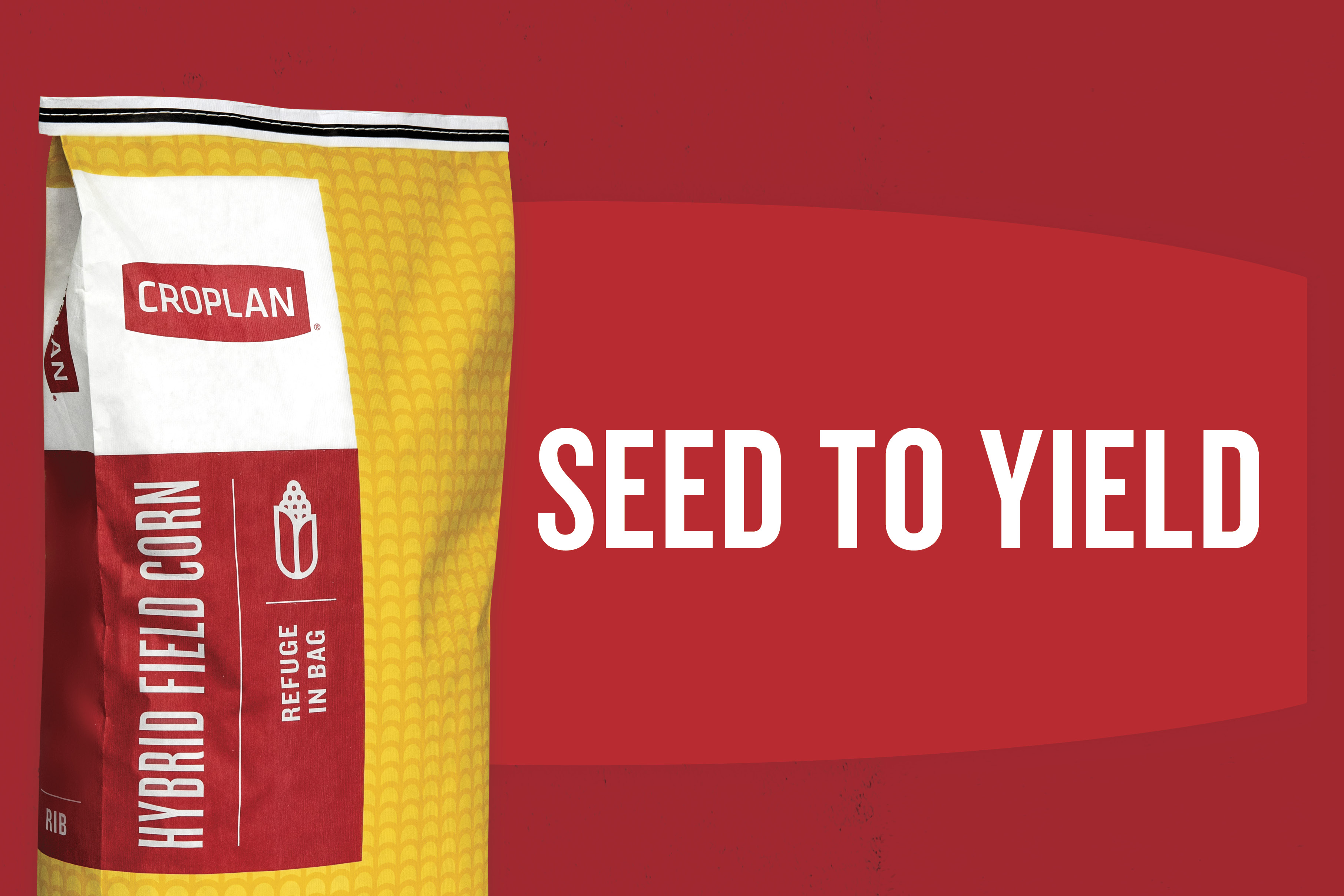5 Key Considerations For 2024 Seed Selection

As you harvest this year’s crop, it’s time to start thinking about the next. Seed selection is one of the largest and most critical decisions you make each season so it’s important to prioritize objective data and attributes over flashy marketing and slick sales pitches. Here are five areas to take a hard look at when evaluating your options.
1. Reliable, Unbiased Data
Yield data is important, but your analysis shouldn’t stop there. Not all hybrids are created equal, and some respond better to certain management strategies than others. Response-to scores can help you match your seed choices to your management style and the potential of individual fields.
We have been collecting response-to data through our Answer Plot® program since 2011. Response-to scores measure how individual hybrids respond to population, nitrogen and fungicide applications. Using these scores can help you allocate your crop inputs budget more precisely for more efficient and productive yields.
When browsing CROPLAN® corn products, you can see how each hybrid scores in response-to population (RTP), response-to nitrogen (RTN) and response-to fungicide (RTF).
2. Corn Insect Trait Packages
Some insects, like corn rootworm, require diversified strategies to achieve control, and it all starts with hybrid selection. Last year, a new RNAi-based corn rootworm trait became available to farmers.
SmartStax® Pro hybrids deliver the industry’s first three-way trait stack to control all three corn rootworm species. It has quickly become a hit with farmers since it provides a higher level of corn rootworm protection than the industry has seen before.
RNAi technology causes insect mortality by interfering with a corn rootworm’s ability to create a specific protein critical to its survival. RNAi technology works differently than a soil-applied insecticide or Bt traits to control corn rootworm, so it’s another tool to defend against their threats.
We currently have two SSPro hybrids available for this season, CP3715 SSPRO and CP4652 SSPRO. We are also looking to launch some additional hybrids during the November timeframe that will be available in limited quantities for 2024 planting.
The new Trecepta® Technology trait is another new option that offers three modes of action against corn borers, fall armyworm, western bean cutworm, black cutworm and corn earworm to protect yield potential and grain quality.
The Trecepta trait has been a strong performer for a couple seasons with an outstanding Lepidopteran pest protection package and excellent yield potential. Across the board this year, especially in the West, we have seen great value in this trait against Corn Earworm and Western Bean Cutworm. Both pests were present across many acres and the trait did an outstanding job. We continue to build our portfolio of products with this trait and will be adding additional hybrids this fall for Spring 2024 planting in limited quantities.
3. Soybean Disease Tolerance
Seed selection is one of the most effective management tools for many diseases as well. For example, there are no in-season treatment options for sudden death syndrome (SDS) so it’s crucial to take proactive steps to reduce the risk of infection. For fields with a history of SDS, choose soybean varieties with high tolerance to the disease and purchase high-quality seed with strong early-season vigor since slow seed germination and emergence can promote early-season plant diseases.
White mold is another costly soybean disease best managed through variety selection. If your fields have a history of white mold, consider choosing varieties with higher tolerance.
4. Seed Treatments
Seed treatments probably aren’t your first consideration when purchasing seed, but they are an important to help protect your investment. There are many seed treatment formulations, rates and components available at different price points, so you need to quantify those price differences to make an apples-to-apples product comparison. Make sure you understand what’s going on your seed by asking which fungicides and insecticides are in the treatment, what they protect against, whether or not there is nematode protection included and if there are additional components that could help support yield potential.
All CROPLAN corn hybrids now include Fortivent® Plus seed treatment.1 Fortivent Plus combines the early-season insect control of Poncho® VoTiVo® seed treatment with ethaboxam fungicide for enhanced pythium control. It also includes Fortivent Zn, which has shown to be outstanding for early corn development, including stand establishment and improved yield potential.
We're one of the only seed brands in the industry to offer zinc as a standard treatment on all commercial hybrids to promote early-season growth and root development. In addition to a premium seed treatment to safeguard your investment, you can also rest assured knowing that a 100% replant policy backs your CROPLAN hybrids.1
For soybeans, Warden® CX II seed treatment provides top-end insect and disease protection. It builds upon the same formulation you know and trust from Warden CX seed treatment by adding Vayantis® fungicide, an industry-leading active ingredient.
5. Services and Investment Protection
Your seed investment is one you need to steward all season long. Programs like Elite Rx® prescription service can help you match the right seed choices to the right acres and protect that seed investment with data-backed agronomic choices throughout the growing season. Plus, the prescription is backed by a service warranty, which reimburses farmers for the cost of services and some input costs if certain predetermined yield thresholds aren’t met.2
As you evaluate your seed options, keep these five areas top of mind and work with your CROPLAN seed retailer to get their tailored recommendations and local expertise.
1 Certain restrictions apply. Talk with your CROPLAN seed dealer for details.
2 Agreement is required and conditions, restrictions and service fees apply. Percentage goals for the Approved Yield range from 95–105% for corn and 95–100% for soybeans. Due to factors outside of WinField United’s control, results to be obtained cannot be predicted or guaranteed by WinField United. Results may vary.
All photos are either the property of WinField United or used with permission.
© 2023 WinField United. Important: Before use always read and follow label instructions. Crop performance is dependent on several factors many of which are beyond the control of WinField United, including without limitation, soil type, pest pressures, agronomic practices and weather conditions. Growers are encouraged to consider data from multiple locations, over multiple years and to be mindful of how such agronomic conditions could impact results. Answer Plot, CROPLAN, Elite Rx, Fortivent, Warden and WinField are trademarks of WinField United. All other trademarks are the property of their respective owners.




